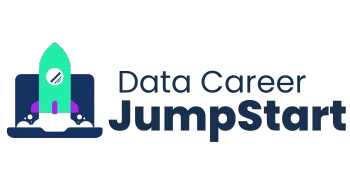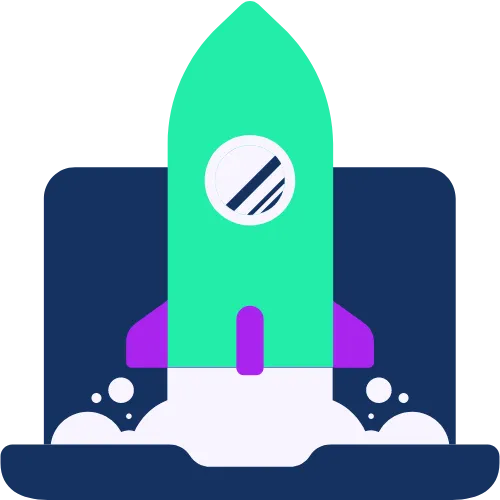
🤝 Brutally Honest Advice About Landing a Data Job
🏀 I’ve worked as a Data Analyst for The Utah Jazz
🏭 I’ve worked as a Data Scientist for ExxonMobil
🏣 I’ve worked as a Data Engineer for MIT
Here are 13 brutally honest lessons I wish I knew when I started: 👇
1. Your Skills Aren’t Holding You Back
One of the biggest misconceptions is that lack of technical skills, like SQL or Python, is what’s blocking you from getting interviews. The reality? Employers rarely know how skilled you are until you get to the technical interview stage. If you’re not even getting interviews, it’s probably not your skills—it’s how you present those skills on your resume and LinkedIn profile.
2. You Will Get Paid to Learn on the Job
Data is a vast and ever-evolving field. Throughout my career, I’ve learned tools like PowerBI, Tableau, SQL, Python, and Excel mostly on the job. You don’t need to master every tool before applying, but you do need a solid foundation. Expect to keep learning new tools and technologies once you start working. It’s just part of the journey.
3. You Don’t Have to Know Everything
It’s okay to not know everything when you apply for your first data job. I certainly didn’t. Even after teaching data engineering at MIT, I don’t consider myself an expert in that area. Holding yourself to an impossible standard of knowing it all will only hold you back.
Focus on mastering some core skills and a growth mindset.
4. Who You Know Matters More Than What You Do
The difference in those that land jobs and those who don’t is networking. Opportunities often come through connections rather than skills alone. If you do great work but no one knows about it, it won’t help you advance.
Start building relationships. Today.
5. Your Domain Expertise Matters More Than You Think
We don’t analyze data for analyzing data’s sake. We do it to improve a business: make money, save time, or save lives. This means you should know something about a domain. Your previous experience in a specific domain (healthcare, finance, manufacturing, etc.) gives you a unique advantage.
When I worked at ExxonMobil, my chemical engineering background helped me outperform data scientists with PhDs because I understood the business problem deeply. Your domain knowledge helps you ask the right questions, interpret results better, and communicate insights effectively.
6. Don’t Take Job Rejections Personally
You’re gonna get rejected. A lot. It’s just part of the process, especially today when hundreds of applicants going for a single job. Many resumes never even reach a human due to Applicant Tracking Systems (ATS), which are kinda dumb and sucky.
Don’t let it discourage you. Focus on improving your resume, networking, and applying consistently.
7. Data Job Titles Are Confusing
Job titles in data can be all over the place. You’ll see roles like Data Scientist, Data Analyst, Data Engineer, but also titles like Optimization Engineer or Data Analytics Scientist that blur lines.
Don’t judge a role solely by its title. Look closely at the job description and required skills. Keywords like SQL, Excel, visualization tools, machine learning, or modeling are better indicators of the job’s nature than the title itself.
8. Data Tools Matter Less Than You Think
While it’s important to be proficient in tools like Python, SQL, Tableau, or PowerBI, the specific tool isn’t as critical as understanding the concepts behind data analysis. I can perform the same business task using a variety of tools: Python, Excel, R, Tableau, or even pen and paper.
Focus on mastering one or two tools deeply, and the rest will be easier to pick up as needed.
9. The Bookends of Analysis Are the Most Important
Think of data analysis as a sandwich—the “bread” is the beginning and end: talking to stakeholders upfront and delivering actionable insights at the end. These phases are the most critical.
Without clear communication at the start, you risk doing the wrong analysis. Without proper delivery and explanation at the end, your work might never be used.
Spend time before you analyze and spend time after you analyze - that’s how to have true impact.
10. How You Present Your Digital Self Matters More Than Your Physical Self
In today’s job market, your online presence often precedes physical interactions. Your LinkedIn profile, resume, and digital footprint shape how recruiters and hiring managers perceive you.
Don’t be fake or dishonest, but also, don’t cut yourself short. Share your work, loud and often. If your work goes unnoticed, it’s as if it doesn’t exist.
11. All Industries Experience Cycles
Every industry goes through peaks and valleys. For example, during the COVID-19 pandemic, my company, ExxonMobil, was in the pooper: layoffs, low stock, fear. Meta on the other hand, was thriving.
Now? Tech feels shaky. And Exxon stock? Up 127% since 2021.
Data professionals work across industries, so it’s important to stay patient and positive.
12. Mentorship Is the Shortcut to Results
Having a mentor who’s been through the journey can accelerate your progress dramatically. Mentors provide guidance, share what works and what doesn’t, and help you avoid common pitfalls.
Whether it’s someone in your network, a program like The Accelerator, or an industry expert, seek out mentorship. It’s one of the most underrated but powerful tools for career growth.
13. You’ll Never Stop Learning
Data is constantly changing. If you stop learning, you will fail. Just learn a little every day and you’ll be fine. If you don’t like learning, this may not be for you.
Final Thoughts
Landing your first data job is hard. Always. But it’s possible.
Your SQL skills, your ability to create dashboards, and your IQ matters less than you think.
Network. Stay positive. Find a mentor. Stay patient. Give yourself credit.
Do those things well - and I promise, good things will come your way.
I’m cheering for you - Avery.


